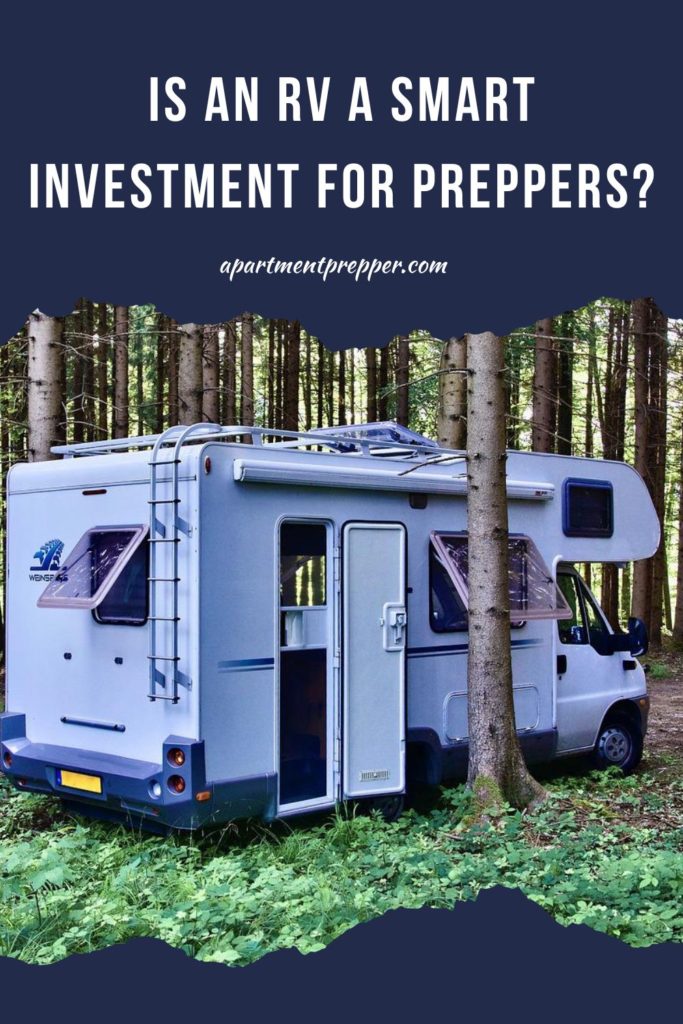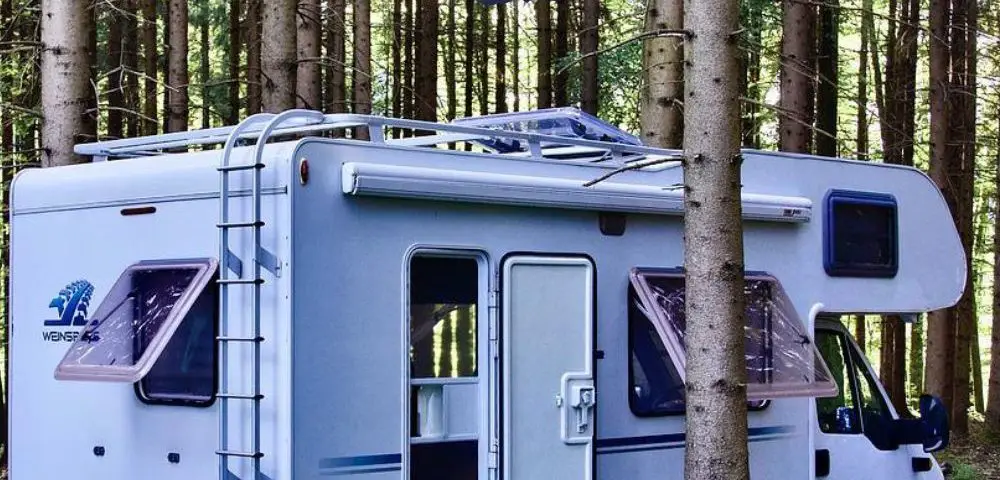Written by Martin Banks
Preppers are known for creating stockpiles of food and supplies, purchasing everyday carry (EDC) items, increasing their self-reliance, and gaining survival and self-defense knowledge and skills. Most survivalists focus on these primary activities, but it’s common for them to take various additional steps to prepare for TEOTWAWKI (the end of the world as we know it).
Regardless of how someone chooses to prep, one critical factor every prepper must consider while planning for unpredictable events or emergencies is their method of transportation.
While plenty of cars on the market would work well in a SHTF scenario, what about other types of vehicles? One great example is the classic recreational vehicle (RV).
If you’re a survivalist, keep reading to learn more about RVs, whether an RV is a good investment, and whether or not you should buy an RV to bolster your preparedness.
Survivalism and Your Method of Transportation
Some survivalists do not focus on making extensive preparations but rather on incorporating survivalist practices into their daily lives.
Whether it’s a natural disaster, war, or some other global catastrophe, it’s understandable that people with vehicles would have better odds of escaping dangerous situations and making it to a safe location.
Preppers usually keep their car stocked with essential supplies and resources they need while traveling from one place to another. This is a wise prepping strategy because emergencies can happen when you’re away from home.
However, a standard car such as an SUV or sedan can only fit so many items or people. What if you had a different vehicle to prepare for a bug-out situation, such as an RV? RVs are commonly associated with camping or long road trips, but they could also be highly useful during SHTF scenarios.
Advantages and Disadvantages of Living an RV Prepper Lifestyle
If you’re a survivalist wondering if purchasing an RV is worth it, continue reading to learn some of the advantages and disadvantages of RV ownership.
Advantages
Here are some of the advantages you’ll enjoy if you buy an RV:
● Keep the modern conveniences found in your home, such as a bed, couch, entertainment system, air conditioning, a bathroom with a shower and toilet, and more.
● There’s plenty of room to store gear, supplies, and stockpiles in an RV.
● Your bug-out location is anywhere you can park your RV.
● You can add backup generators if the gas generator runs out of fuel.
● Buying an RV with Wi-Fi capabilities allows you to work remotely.
● Thousands of campgrounds are available nationwide.
● You can live frugally in an RV.
● You can bring your pets with you in an RV.
● There are various types of RVs to choose from.
● The RV community is supportive and helpful.
Disadvantages
Here are the disadvantages of owning an RV if you’re a prepper:
● RVs and RV generators rely on fuel, which may be costly. If you run out of power, you might not be able to find a gas station, leaving you stranded.
● RVs are large and easy to see, making it hard to go unnoticed or keep a low profile.
● You must be near a water source.
● RVs can get hot in the summer and cold in the winter.
● RVs are expensive to buy, maintain, and repair. Finding replacement parts or shops that can fix your RV if it breaks down or has a mechanical problem could be difficult.
● RV parking fees can be expensive.
● The size of an RV makes it difficult to maneuver in certain situations, such as in traffic, along roads with tight curves, near roadblocks, or on different terrains.
RV Living During a SHTF/Bug-Out Scenario
Like any vehicle, RVs have benefits and drawbacks in a SHTF scenario. However, RVs are essentially bug-out or SHTF vehicles by nature. Many people refer to RVs as “homes on wheels.”
By purchasing an RV, you’ll have a portable home that protects you from dangerous situations. It would be ideal if you could bring your home with you on the road, but it’s impossible – RVs are the next best option.
Tips for Buying an RV
Here are some basic tips to keep in mind if you’re a prepper contemplating buying an RV:
● Choose the right RV: There are a few types of RV on the market. For example, there are motorhomes, travel trailers, fifth wheels, and tent trailers. If you already have a sedan, pickup truck, or SUV, you might want a trailer to attach to the back.
● Equip the RV with appliances: If you want to buy appliances for your RV, be sure they are compact so they can fit in tight spaces. Try to manage your expectations regarding cooking in an RV’s kitchen.
● Consider your financing options: You can use a loan calculator and choose between a used or new RV. Then, take out a loan or set up a financing plan to pay for your RV.
● Anticipate potential issues: If there’s even a slight possibility the RV could have a battery, engine, or other mechanical issues, try to plan for it. If you only plan on using your RV during a bug-out, maintain it properly and inspect it frequently.
● Focus on waste, water, and power: You’ll need to plan for waste disposal, provide power to your RV, and keep your water supply stocked.
Again, buying an RV is a big decision. Not every prepper will find RVs practical or necessary.
Living an RV Prepper Lifestyle
Because a disaster can strike anytime, preparation is key for survivalists. Anyone involved in the survivalist movement understands this and takes active steps to plan for emergencies or global catastrophes.
Depending on the situation, you might need to travel off-grid or to remote locations, which could present challenges if you have a standard vehicle. Therefore, investing in an RV could be a wise decision that aligns with your lifestyle and will prove useful in a SHTF scenario.
About the author
Martin Banks is the managing editor at Modded. Follow him on Twitter @TModded for frequent updates on his work.
We are an affiliate of Amazon.com, which means we received a small commission if you click through one of our Amazon links when you shop, at totally no cost to you. This helps keep the lights on at the blog. Thanks!
Image by Siggy Nowak from Pixabay


